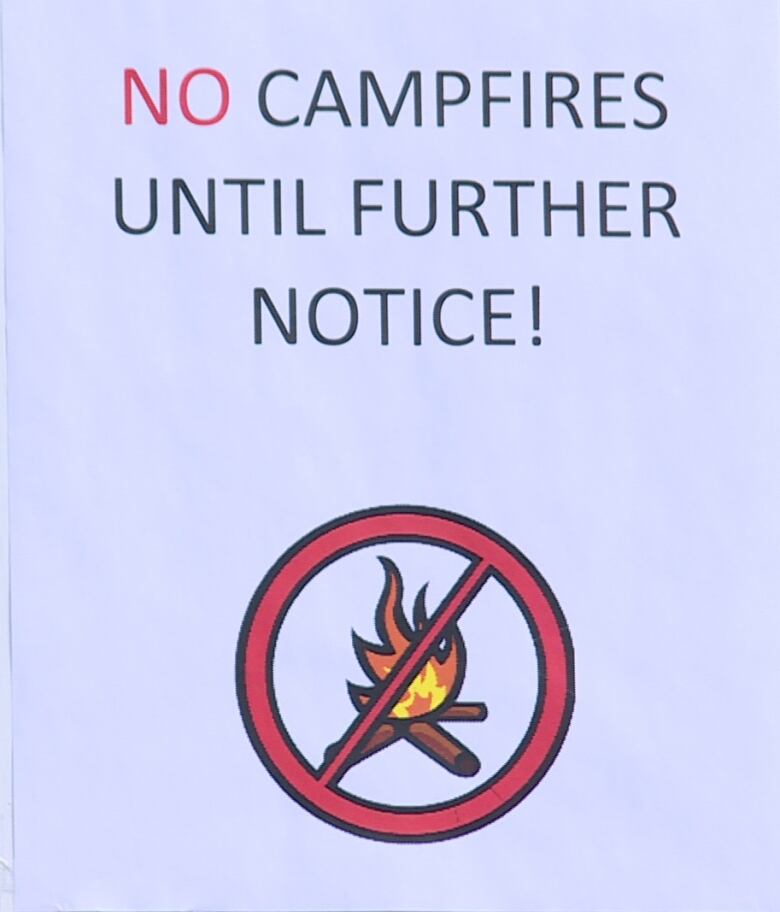Fewer campers at private campgrounds during burn ban
Rules changed for 2016 season to bring private campgrounds under provincial burn restrictions

Fewer campers set up the tents and trailers at the LaHave River Campground this year, and owner Angela Doiron blames the downturn on burning restrictions this summer.
"Camping and campfires are synonymous," said Doiron. "They go to have their s'mores, they go to have their hot dogs. They go to sit around the fire and play their guitars and have a couple of drinks and rest and relax and talk."
Without campfires, Doiron said, some campers decided to forego the experience.
She said her business lost $10,000 in site rentals, and 30 per cent of wood sales.
Campground owners unhappy
Doironispresident of the Campground Owner's Association of Nova Scotia, which represents 57 businesses across the province.

Not every campground was affected by the burn restrictions, she said.However, mostmembers were not happy when the Department of Natural Resources decided in June to put private campgrounds under burning restrictions.
"There's never been, to my knowledge, a wildfire that started from a camper's campfire in a private campground."
In previous years, private campgrounds could apply burn restrictions at their discretion.
"We have a vested interest making sure that we don't burn our properties down because that's our livelihood," saidDoiron.
She said campgrounds were not consulted about the change. The burn ban was in place in western Nova Scotia for much ofthe summer.
Fire risk was too high
John Ross,director of forest protection with the Department of Natural Resources, defended the burn restriction.
He said drought conditions made it necessary.
"When we get into a no-burn situation, conditions are very dry, we just felt that it was important that people weren't having fires under those circumstances."
The change will be permanent, he said, but noted burn bans aren't usually as frequent as they were this year.
Campers miss fires
Lillian Rice has spent every summer for the last 22 years camping at Rayport Campground in Martin's River.
She said a campfire is key to the camping experience.
"Well, it's not the same because you like to sit out ...at nightaround the campfire, and have some friends around and have a few drinks and laugh," said Rice.
"It was nice to see the flames."












_(720p).jpg)


 OFFICIAL HD MUSIC VIDEO.jpg)
.jpg)



























































































